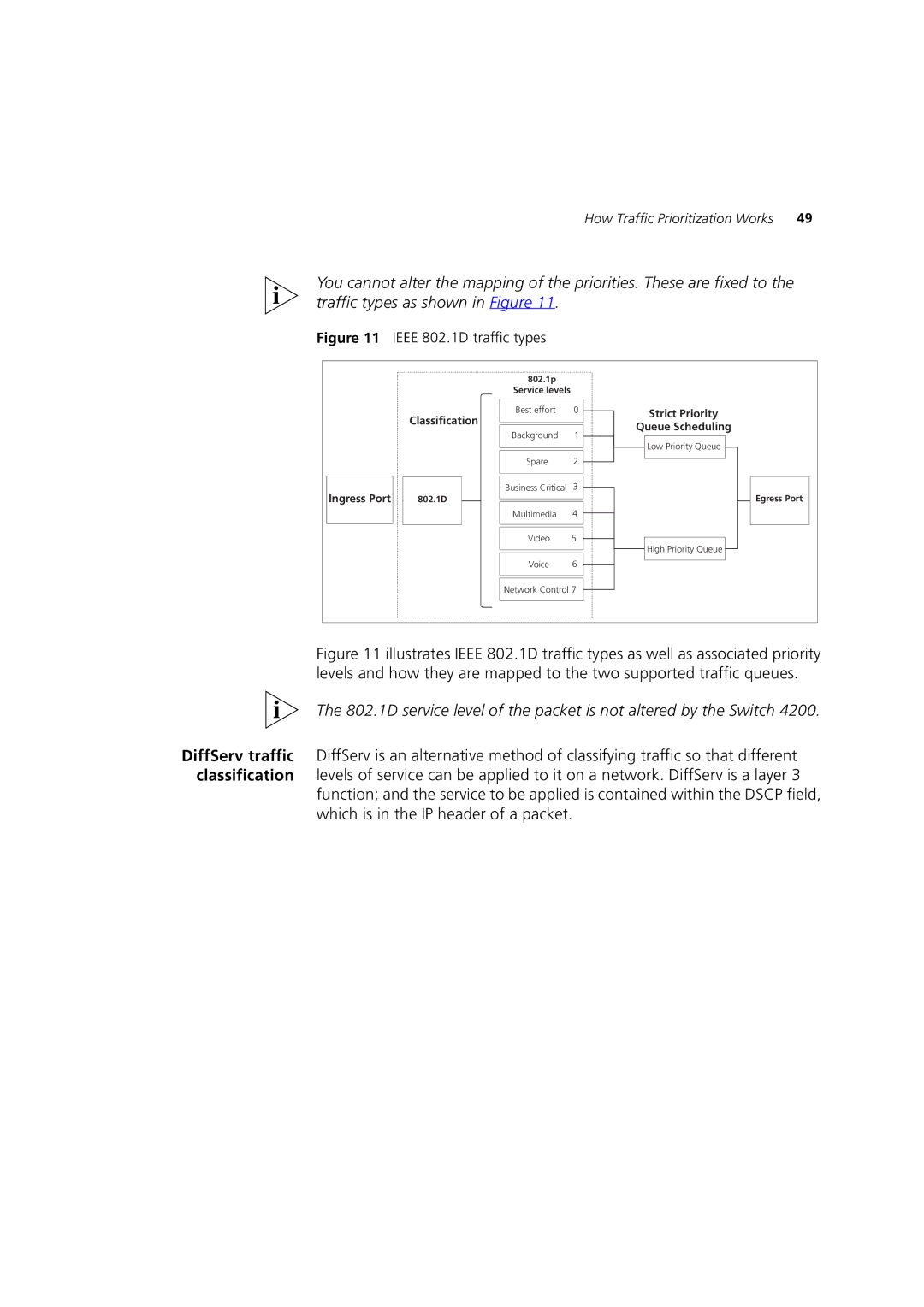
How Traffic Prioritization Works | 49 |
You cannot alter the mapping of the priorities. These are fixed to the traffic types as shown in Figure 11.
Figure 11 IEEE 802.1D traffic types
Ingress Port
Classification
802.1D
802.1p
Service levels
Best effort | 0 |
|
| Strict Priority |
| |
|
|
| ||||
|
|
| Queue Scheduling |
| ||
Background | 1 |
| ||||
|
|
|
|
| ||
|
|
|
| Low Priority Queue |
|
|
Spare | 2 |
|
|
|
|
|
|
|
|
|
| ||
|
|
|
|
| ||
|
|
|
|
|
|
|
|
|
|
|
|
|
|
Business Critical | 3 |
|
|
|
|
|
|
|
|
|
|
|
|
|
|
|
|
|
|
|
Multimedia | 4 |
|
|
|
|
|
|
|
|
|
| ||
|
|
|
|
|
|
|
Video | 5 |
|
|
|
|
|
|
|
|
| High Priority Queue |
|
|
|
|
|
|
|
| |
Voice | 6 |
|
|
|
|
|
|
|
|
|
| ||
|
|
|
|
| ||
|
|
|
|
|
| |
|
|
|
|
|
| |
Network Control 7 |
|
|
|
|
| |
|
|
|
|
| ||
|
|
|
|
|
|
|
Egress Port
Figure 11 illustrates IEEE 802.1D traffic types as well as associated priority levels and how they are mapped to the two supported traffic queues.
The 802.1D service level of the packet is not altered by the Switch 4200.
DiffServ traffic DiffServ is an alternative method of classifying traffic so that different classification levels of service can be applied to it on a network. DiffServ is a layer 3
function; and the service to be applied is contained within the DSCP field, which is in the IP header of a packet.
